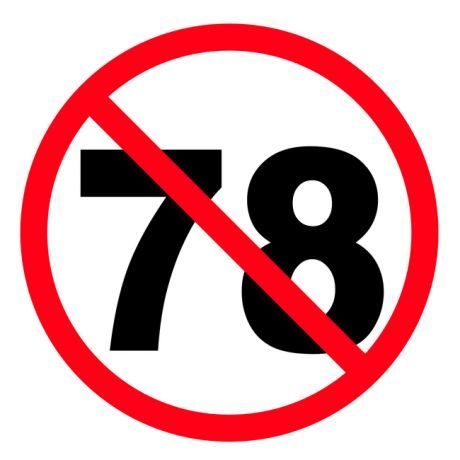Features
You are here
In August, the Bill 78 s**t will really hit the fan

June 20, 2012
In all the justified outrage about Bill 78 and its attacks on freedom of expression, most accounts, in both French and English, have missed the main objective of the “special law”: attack, undermine and subdue student unions.
Beyond its draconian fines regime for not notifying police in advance, filing a route, over 50 people, etc, there are targeted and specific measures that, come August, will really put the strength of the student movement—and the depth of solidarity with it—to the test.
Forced compliance
The attacks on student unions and on the student right to strike in the law are both explicit and implicit. The impact on workers will also be considerable.
First, the law gives sweeping powers to the Minister of Education—allowing the government to change any legislation or law in order to enforce bill 78, on the Minister’s recommendation. The Minister can issue directives to institutions, which institutions are required to follow.
The law also requires people to police each other for compliance with the law. Anyone acting, or failing to try to stop others from acting, to “impede…instructional services or the performance…of work…,or directly or indirectly contribute to slowing down…such work,” is in breach of the law.
The law also requires unions and student associations to “induce” their members to comply.
And agreements between administrations and unions representing staff need Ministerial approval.
The law requires employees to: “report for work according to their normal work schedule,” and “perform all duties…without any stoppage, slowdown, reduction or degradation of their normal activities.” In other words, this law bans the practice of respecting strike votes by profs by either cancelling classes or otherwise altering teaching in order to respect a strike vote.
Although legal strikes under the labour code are allowed, unions and their members and representatives cannot participate in “concerted action” pickets or other strike-related activities if those activities would disrupt normal teaching.
Attacks on student democracy
But the attack on student unions is even more direct.
If any impediment arises, institutions must describe the situation to the Minister including the name of the student union to which the “affected students” belong.
If the Minister believes the disruption is due to illegal action by a student union, the Minister can order the institution to stop collecting membership dues and evict the student union from freely provided space including furniture, notice boards, etc., for one term for every day of disruption.
The law negates any previously agreed-upon dues structure established by a student union for the duration of the time during which institutions are not collecting dues. A federation of associations such as FEUQ or La CLASSE can lose its membership dues when the Minister orders student unions to stop paying fees or making any financial contributions to the federation.
What this means is that student unions’ internal democratic processes of referenda for dues increases, etc., are rendered immaterial by the law.
Further, the law makes employees unions, student unions and federations civilly liable for any damages suffered for any single or collective action that prevents anyone from attending classes or otherwise disrupts work. It also expressly allows class action lawsuits.
But where the rubber really hits the road is in the fines.
Mass fines
A single person can be fined $1,000 to $5,000 per day of disruption. However, the fine is $7,000 to $35,000 per day for officers and official representatives of unions, student unions and federations, or institutions, and “a natural person who is the organizer of a demonstration.” It is $25,000 to $125,000 per day for student unions and federations, employees unions, or “a legal person, a body or a group that is the organizer of a demonstration.” Fines are doubled for a second offence.
If an institution refuses to comply with a Minister’s order to withhold funds and space, they can be fined $25,000 to $125,000. So can any student union refusing to withhold dues or fees from a federation if ordered to do so by a Minister. And finally, anyone, no matter who, who helps or encourages anyone else to break the law is liable to fines of $1000 to $35,000 depending on the circumstances.
What all of this adds up to is the following:
For one day of strike after classes supposedly resume in August, single members of an association walking a picket line can be fined $1-5000 each; the only possibly way to believe more than a handful of students would agree to that, even for one day, would be for the student association to assume the cost. That means the student union would be on the hook for its own $25,000 per day, plus $1-$5000 per day for each picketer, plus likely $7-35,000 per day for each officer organizing or speaking at a picket line. Fines will quickly add up to the astronomical. Organizing the strike outside the purview of the student union can only go so far, because fines will be levied anyway on anyone involved. Student unions hoping to pool resources in some way will be prevented or curtailed by provisions making it a fineable offense to contribute to a federation or to act in any way to encourage breaking the law.
And, alarmingly, “any form of gathering that could result in denying such access is prohibited inside any [school building]…or within 50 metres.” This clause may be intended to apply solely to picket lines and rallies, which is bad enough, but could be interpreted to mean meetings. The word “could” suggests that a meeting to decide whether to go on strike or not might fall under this clause, since it “could” “result in denying such access.”
At its most basic, this law is an attack on student unions’ right to freedom of assembly, to their own internal democracy, and their right to organize. It is also a slippery slope for similar measures to be levied against labour.
Solidarity and resistance
That’s why politics is also an essential part of this. Beyond the law suit calling for sections of the law to be repealed, the government can only withstand so much pressure.
Outside Quebec the solidarity actions should continue. Groups and individuals, especially from unions, should continue to donate to the strike fund. They should let both the students and the labour movement in Quebec know they are doing so.
The unions in Quebec are under pressure right now to finally mobilize for a social strike. Unfortunately so far some of them are inclined to focus on the elections, while others merely seem pessimistic about the potential to really mobilize.
The pressure on them should continue. For a time, the unions might be able to defer payment of fines by appealing to the courts. But in the long run, for the student movement in Quebec to continue to play the magnificent role it has played up to now depends on our continued solidarity and our financial contributions, more important than ever.
Section:
- Log in to post comments










